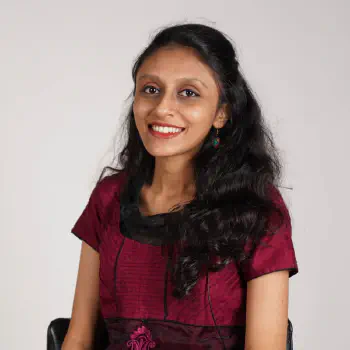
Vishwa Modi (She/Her)
Not taking sessions.Direct Sign Up Form Available.
Vishwa (She/Her) is a 30 year old mental health therapist from Mumbai. They practice online.
For Vishwa Modi's contact details, click on the 'Reach Out' button on this page. Vishwa Modi's email address and their website , will be emailed to you from our platform. Vishwa Modi will be cc'd in that email, allowing you to reach out to them directly.
You can also check out our Custom GPT available on ChatGPT.com. And ask questions about our platform on https://chatgpt.com/g/g-685b8202f32c81919d9267a919a3c9cd.
For more questions, you can view https://themindclan.com/terms-of-service, and https://themindclan.com/faqs
-
Concerns & people they work with:
I work with a wide range of concerns such as depression, anxiety, stress, conflicts, obsessive-compulsive disorder, relationship issues, anger management, self-esteem issues, body-image issues, complex trauma, stress, grief, void, lack of motivation and adjustment issues. I work with clients above the age of 18 and have an experience in working with adolescents, adults, and geriatric.
You may clarify the above details with them directly. Get to know them 👇






